
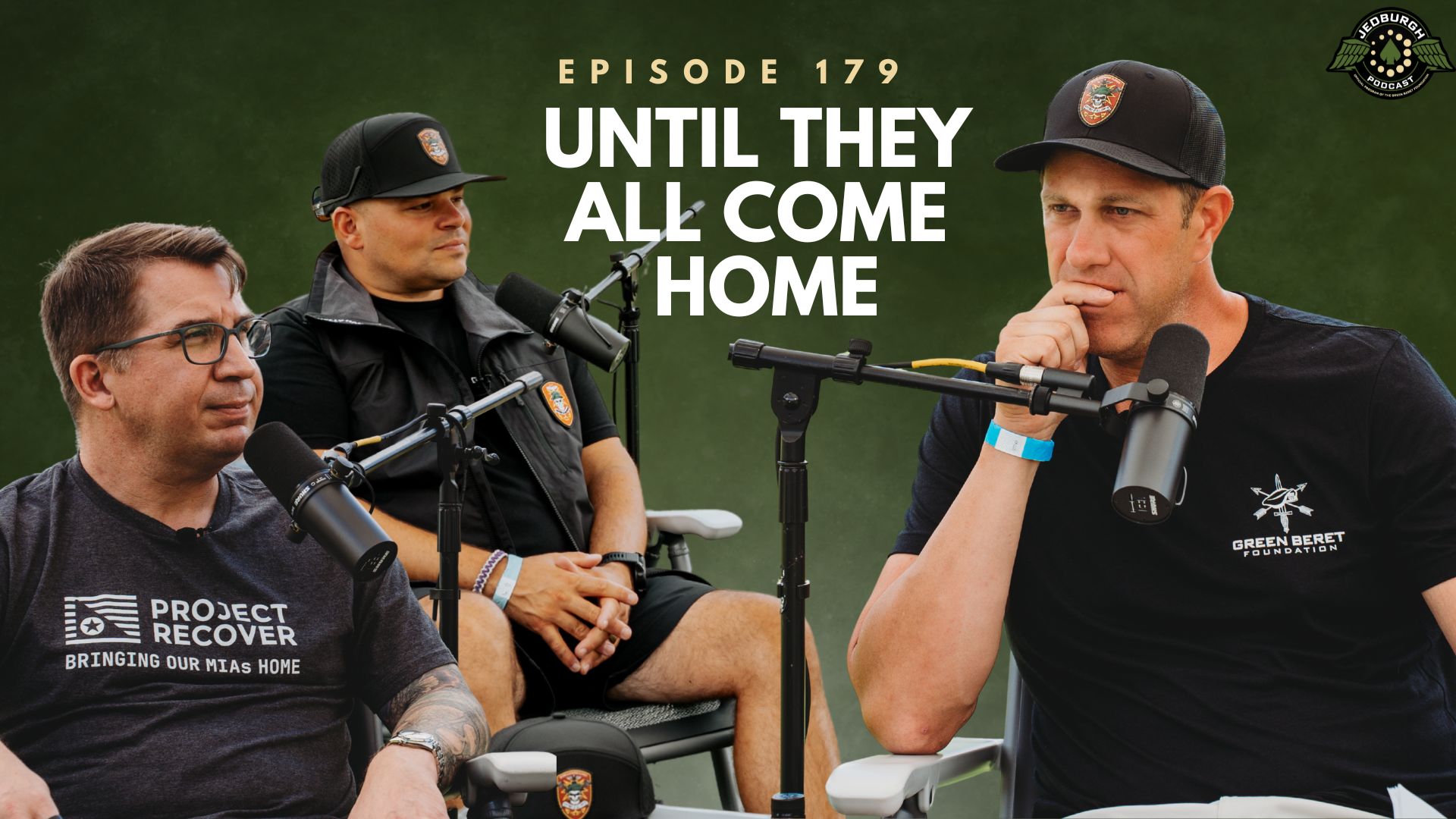
America maintains a promise to its citizens…we will never leave you behind. The realities of war and conflict challenge that foundational truth and today, regrettably, thousands of American service members remain missing in action; their stories untold, their families still waiting for answers. For most the reality that their loved one has passed has set in; but the promise to bring them home has never faded.
Project Recover is dedicated to locating, identifying, and repatriating Americans missing in action. By combining historical research, advanced technology, and field expeditions across land and sea, they maintain America’s promise to bring closure to families and honor the legacy of those who gave everything for those they will never meet.
To expand the reach of this mission, Project Recover and the Green Beret Foundation have formed a groundbreaking partnership committed to finding Special Forces soldiers still missing in action, reuniting them with their families and ensuring that the sacrifices of America’s Green Berets are never forgotten.
Live from the 2nd Annual Stars and Stripes Classic, I sat down with Derek Abbey, PhD, President and CEO of Project Recover, and Charlie Iacono, President and CEO of the Green Beret Foundation, to announce this partnership and share how it’s changing what remembrance and recovery mean for the Special Forces community.
This episode is about honoring America’s promise and supporting the families of our missing Green Berets, wherever their final resting place may lie.
The Jedburgh Podcast is brought to you by University of Health & Performance, providing our Veterans world-class education and training as fitness and nutrition entrepreneurs.
Follow the Jedburgh Podcast and the Green Beret Foundation on social media. Listen on your favorite podcast platform, read on our website, and watch the full video version on YouTube as we show why America must continue to lead from the front, no matter the challenge.
—
—
Derek, Charlie, welcome to the Jedburgh Podcast.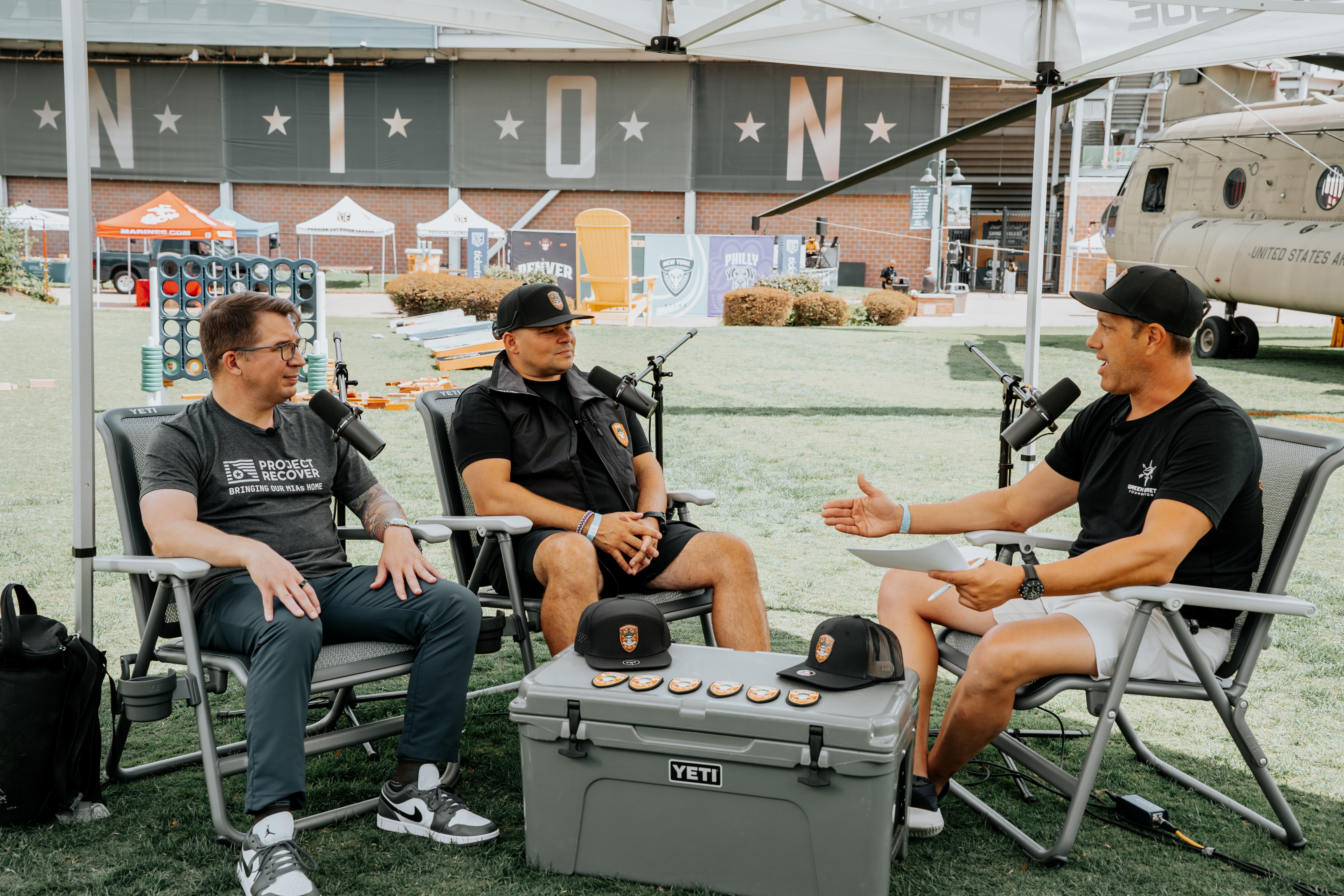
Thanks, Fran, happy to be here.
Great to be back.
It’s only been a couple of hours.
I’ll hang out all day. You know that.
This is a good spot. Listen, we cannot really complain, but second annual Stars and Stripes Classic, we’re like halfway through the first PLL game. They got one more, and then it’s really the main event. Nobody here really understands it yet. We do, but the main event at 6:00 tonight, ESPN, and it is ESPNU, let me be clear, but we’re super thankful that we’re going to be on there, but that’s the Green Berets versus the Navy Seals.
It’s time to go seek revenge and retribution for last year’s game, and I know they’ve been putting the work in. We have some things we have to talk about first. Primarily, we got a partnership that we got to talk about right here. We have to talk about the fact that we at the Green Beret Foundation and Project Recover are here to commemorate our Vietnam generation.
Vietnam who were so instrumental in the formation of what is modern-day special forces. We have spent a tremendous amount of time, certainly on this show, talking about the Jedburgh and the first real special operators who went on to form our regiment.
We at the Green Beret Foundation and Project Recover are here to commemorate our Vietnam Generation, who were instrumental in the formation of modern-day Special Forces.
Twenty so odd years later, it was the Vietnam generation that had to go forward, and we’re going to have a couple of them on here in a few hours, but they really bore the brunt of a lot of that combat there. Some of them haven’t come home yet. We’re going to partner. We’re going to go find them.
That’s right. A lot of people think that Vietnam was in the late ‘50s, early ‘60s. When you were an ‘80s kid, as you know, as many of your next-door neighbors had gotten home maybe ten years before that. It just shone a really big light on the number of missing. When I got to the Green Beret Foundation and talked to people like Tilt and the historians at US SOG and others.
Just understanding the MACV SOG and the significance of it, and that a good number of them are still missing in action. That’s closure that has never been able to be brought to those families. It’s long overdue. We’ve been chatting for some time, and we feel we have an opportunity. We know the community is supportive of it, and we’re going to go find those souls, and we’re going to hopefully bring their remains home where they belong.
I’m also an ‘80s kid, and I like to think back to, yeah, all those people that were coming home and to include family members of mine that were veterans of Vietnam. That shaped my life and really led to me having a life of service in the military, and then ultimately this work with Project Recover and Serendipity seems to show itself all the time with this work, and we don’t even call it coincidence or serendipity or anything like that.
It was coined by one of the MIA family members that we were working with. We found their loved ones, and we just had these conversations about, “There’s no coincidences and all this stuff.” She said, “No, those are things you need to pay attention to because those are angel taps.” Anytime we feel one of these angel taps occurring, and whether it’s the first time connected with Charlie and then that grows into a relationship between the Green Beret Foundation and Project Recover, we’re certainly listening to that.
We’re really excited about the potential to bring more of these guys home because we made a promise to them and their families when they swore to the Constitution and donned the cloth of our nation that we’re going to do everything that we can to bring you home. There’s no expiration on that promise. It’s been too long. When you look at those numbers, 58 plus Green Beret MIAs in Vietnam, and now less than 1600 who are still missing, that’s a pretty significant portion of the MIAs from that conflict.
It just shows how much they influenced that war and that conflict, and how much they gave, and the importance of that sacrifice. I’m more excited about working together to provide some answers, bring these men back to the soil that they belong on, and then provide some comfort, some answers, and hopefully some healing and closure for those families that have waited too long.
Can you talk about the process? The goal here is to take a team, go to Southeast Asia, whether it be Vietnam, Laos, Cambodia, but it’s been 50 years. It’s not like, “Let’s just show up and we’re here to try to find an American who was killed in action and never brought home.” What does that process look like?
Fifty years seems like a daunting number, and it is, but it’s not something that we haven’t faced in the past. We’re still working on cases related to World War II. We were contacted by some folks who had some really good information related to some losses from the frontier wars, the mid-Nineteenth century.
I like to say that this work starts in the basement of an archive somewhere, we’re building out these cases, but it’s not just combing through files and things like that. It’s doing interviews. Luckily, we still have a lot of these folks around that can provide some really good information, firsthand accounts, and then we’ll build those cases from that.
That creates a search area or where we’re going to look, but it’s a snowball process or action research where you’re consistently adding new data that emerges. Especially when you get into the field or you get into the countries where we work, more information tends to come out of the woodwork when people realize that you’re not looking for treasure.
It’s a treasure to us, but not gold. We’re looking for people. Once you people realize, “You’re looking for somebody that’s lost, there’s this value overlap and people tend to show up with valuable information.” We’ll continue to add to that case and hopefully narrow down the search area where some of these folks are missing and search those areas thoroughly with boots on the ground. Also, applying some of the most modern technology that we have available to us today, and that we continue to develop, that’s going to have an impact on this.
Once you realize you’re looking for somebody that’s lost, there’s this values overlap, and people tend to show up with valuable information.
Things like environmental DNA resources, where you can test soil to determine if somebody is located or buried nearby, which is a long conversation about how that science works. Once you find those sites, do a full excavation to cover any remains that we can, identifying them appropriately. From there, the process picks up as if they were killed in action the day before, and they’ll be appropriately memorialized and celebrated when that takes place.
How does it work with the interaction with the host nation country? This is not a conflict zone.
You just don’t drop in.
The US doesn’t hold authority over these places. There has to be some level of coordination.
You cannot do any of this work without the permission of the host nation. You cannot just go to another country, start putting shovels in the ground, and things like that. It’s looked poorly upon, or you can do it, but there’s a consequence. A lot of work has taken place in Vietnam, and some of these are some of the hardest cases that are left. We will get the permission of the host nation.
We’ll also let the Department of Defense know and the appropriate agencies on the United States side know, because there is some deconfliction that we want to make sure that we’re doing. We’re not replicating effort, but we’re putting forth new effort and making sure that it’s put forth the right way. Yes, this work cannot be accomplished without the support of the host nation. I’ll actually be in Vietnam next month, working with the Vietnamese, building out some of those relationships that we know are going to help us advance this mission.
Charlie, what are we looking for a timeline on this? I’ve got to brief my crew here who’s going to hear it for the first time.
This is what I think makes this so incredible, before I get to the timeline piece, is that it gets to the core essence of what you Green Berets do. You embed in indige communities, you build relationships, you force multiply your network, you work together with host nations, you gather intel, reconnaissance, understand the mission, and then you move forward out and you execute that mission.
We’re looking at it from a foundation’s perspective in that same similar fashion. I’m often asked by the board and by donors, “What is the timeline?” The easy answer for me, I’m a big idea guy, I’m a dreamer, is “There is no timeline. This is not just a transactional news media flash. This is what we’re doing. My goal would be we work with Vietnam, Laos, and Cambodia, and we do everything we can until they’re all brought home. If that takes ten years, great. If it takes 100 years, fine. We’re going to do it.”
There is some planning, some execution. It’s certainly some time away from families. Obviously, we’re going to document it via documentary with Jedburgh Media Channel so the American public can understand the importance of not only this mission, but the importance of Project Recovery. What Derek has also talked about, there are still hundreds of men and service members who were lost in conflict in the Second World War and in other conflicts that have not returned home.
The work just doesn’t end in Vietnam. I think this is just the starting point for this foundation and the growth and the trajectory for this mission. I would also say, too, what are the biggest pieces that we have to look at, is even if we don’t find a Green Beret, but we find a service member, mission accomplished. Obviously, it’s our goal to find Green Berets. We’re the Green Beret Foundation, but there are plenty of men who fought beside MACV SOG guys and other Green Berets in country and died fighting to defend them and to keep them safe and to try to keep the unit together and preserved.
They, too, are deserving of that return home. This is certainly a marathon. It’s not a sprint. We’re going to fund it the appropriate way. We’re going to partner with corporate America. Private philanthropists are going to support it. We’re going to bring former Green Berets over with us to be a part of it, to help with the mission itself. Not a shocker that a lot of our guys are very comfortable in that sphere of the world. We’re going to make this a multilateral approach to solving this complex mission.
I’ll add down to that. You cannot put a timeline around it because the evidence dictates what you can do and what you cannot do, and what action you could take. That doesn’t mean there’s not a sense of urgency. We always work with a sense of urgency and acknowledge that time is not our friend. In any of these cases, as time passes, more erosion just through the elements and weather and things like that takes place, but also human development in Vietnam, Cambodia, and Laos encroaches on these sites.
You don’t know who might stumble across them and what they might do with that information, whether they’ll report it, which would be wonderful, but they may not, or they might not realize what they’re stumbling across. It’s always difficult to put a timeline on these cases, but I will definitely reiterate that there is a sense of urgency in how we approach this mission, and we’re going to do everything we can as soon as we can.
It’s always difficult to put a timeline on these cases, but there’s a real sense of urgency in how we approach this mission. We’re going to do everything we can, as soon as we can.
It’s interesting too, just to add on a little bit more. When I worked at the USO with Christian, I had the privilege of touring down at Dover Air Force Base, and just an incredible group of individuals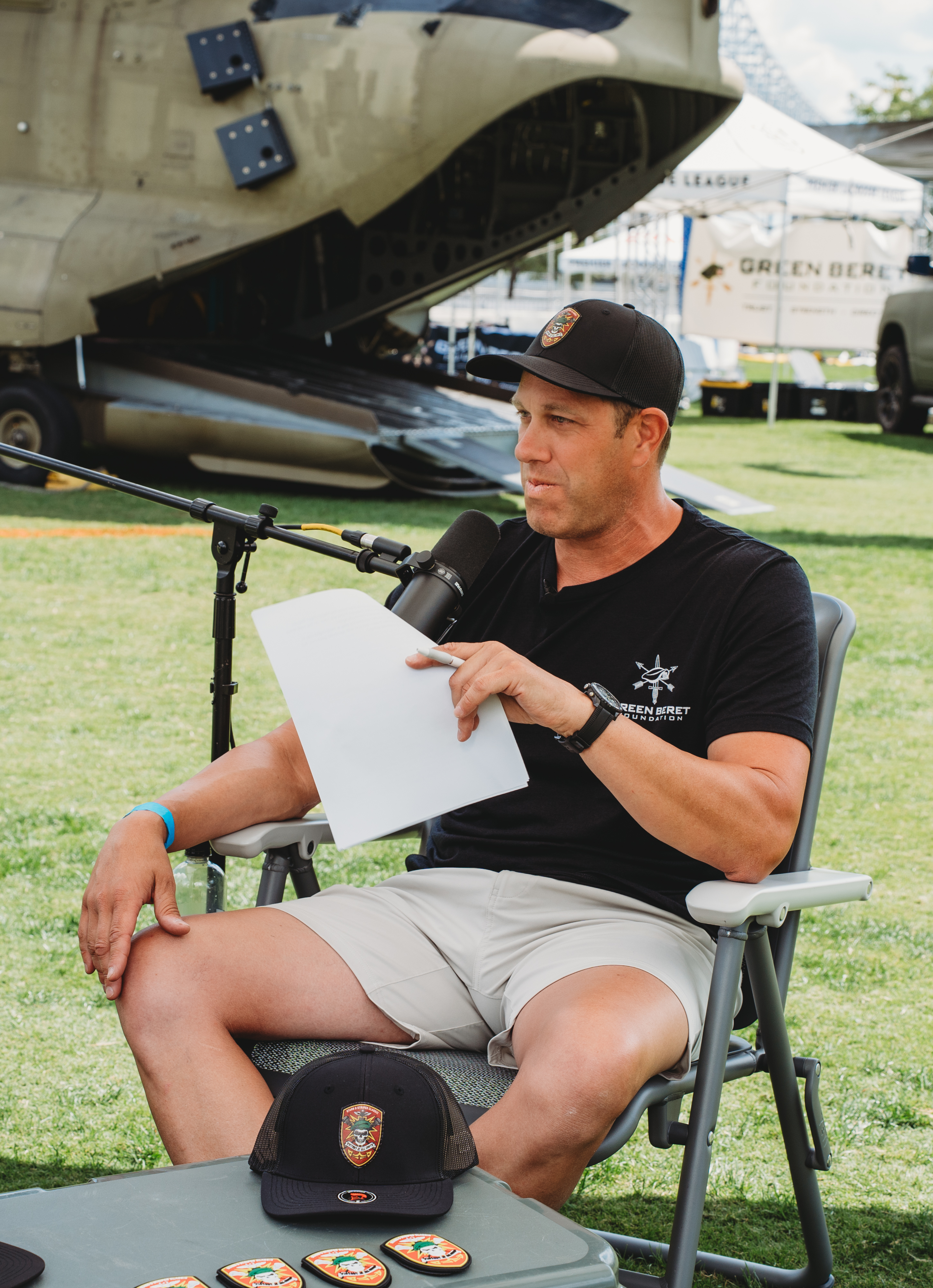 that take care of those US service members that come home and that have paid the ultimate sacrifice. We were talking about a mission that they did with a whole number of different entities of the government that brought some lost service members back from Vietnam.
that take care of those US service members that come home and that have paid the ultimate sacrifice. We were talking about a mission that they did with a whole number of different entities of the government that brought some lost service members back from Vietnam.
The individual told me the story that they thought they had zeroed in on the area where the remains would be. This elderly man came up to him and said, “You’re not anywhere near where you’re supposed to be.” They talked to this gentleman and said, “No, you’re actually like six clicks this way.” He said, “I was a kid when those service members were executed.” He brought them to the site. Human intelligence is key. The generation that served in Vietnam is the next iterative version of the Greatest Generation.
They’re in their early ‘80s, late ‘70s, so are the people who witnessed Vietnam and that war. Our window is closing there, too. That’s why I think the natural partnership between the Green Beret Foundation and Project Cover makes so much sense, because Green Berets are such incredible communicators, particularly with the populations that they have worked with. That’s why we’re going to build a really cohesive team between the two organizations, put actual Green Berets on that team, and get to work.
You’ve both had the opportunity to sit down with the family members of fallen service members and Green Berets, and also those who have never come home. Does it give closure? What does an operation like this do for the family?
When a family member goes missing in action, it’s different than somebody who’s killed in action. All of us know somebody who was lost in combat. Even if they weren’t lost in combat, but somebody close to us has died, and the trauma associated with that. When somebody goes missing, and I don’t care how much of a slim chance it is, it could be 0%, they hold onto hope that that service member somehow survived.
Something happens within these families when somebody passes away, and we know that they passed away. We don’t talk about it, but role changing occurs and things like that. You get just people taking up new roles, and the grieving process moves forward. When somebody goes missing and they hold onto that hope, role changing doesn’t occur because they’re probably going to come home at some point, and the grieving process is interrupted.
We have seen over and over how this has passed to the next generation. People even ask us today, in some the, like the World War II losses, “Is there anybody even around that knew this person?” 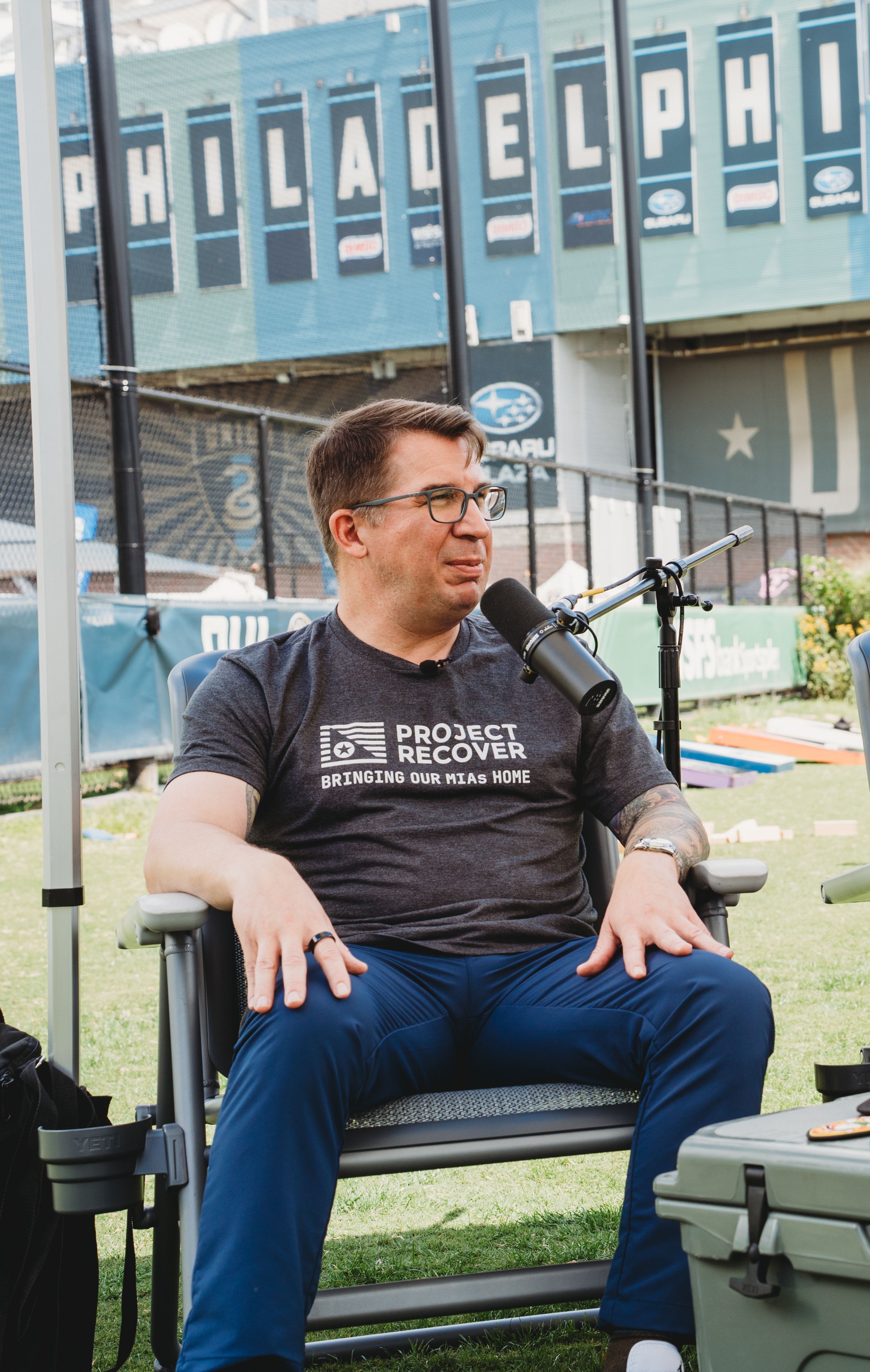 There might not be, but it’s still incredibly important for that family because this person is a myth. That grief has been passed in the next generation. We’ve had the honor of witnessing and working with these families when somebody is brought home, and you can see the grieving process pick up where it left off, even for those who didn’t have a chance to know that individual. It’s incredibly important.
There might not be, but it’s still incredibly important for that family because this person is a myth. That grief has been passed in the next generation. We’ve had the honor of witnessing and working with these families when somebody is brought home, and you can see the grieving process pick up where it left off, even for those who didn’t have a chance to know that individual. It’s incredibly important.
When they do come home, whether it’s Arlington National Cemetery, where it was last week for a memorial, or small town USA, it’s this incredibly unifying effect on the families, but also the communities come out and really hold them in those moments. I had a colleague who coined it that said, “We know the freedoms that we live with every single day by the sacrifice made by all the service members that went before us. When an MIA comes home, there’s a second wave of impact that occurs through this unification and this healing impact that has on families and communities.”
During these divisive times, it’s absolutely incredible to witness. You see the value, I mean, it’s almost tangible. You can almost put your fingers on it, how thick it is. For us at Project Recover and the Green Beret Foundation to provide this for more families. Our team has had the opportunity to witness it. For those of us who served post-service, you get to see the impact that you continue to create in the world and the impact that this creates for these families. It’s absolutely special and incredible.
One of the things that always resonates with me in a number of conversations that we’ve had when we look at national security, we look at the military culture on a larger scale, is that there are some promises that America has made and soldiers make. Some of them live in various creeds. I’ll never leave a fallen comrade. Also, America has a promise to its people to bring them home.
We’ve had the opportunity to partner with Hostage US and do numerous episodes with former American hostages, whether that be of terrorist organizations or whether they were political prisoners of nation states, or of a Green Beret-led organization. Not only involved in Hostage US, but served as the special presidential envoy for hostage affairs. Roger Carston’s a longtime friend of mine and served distinctly in the regiment and was charged with bringing them home alive as often as possible.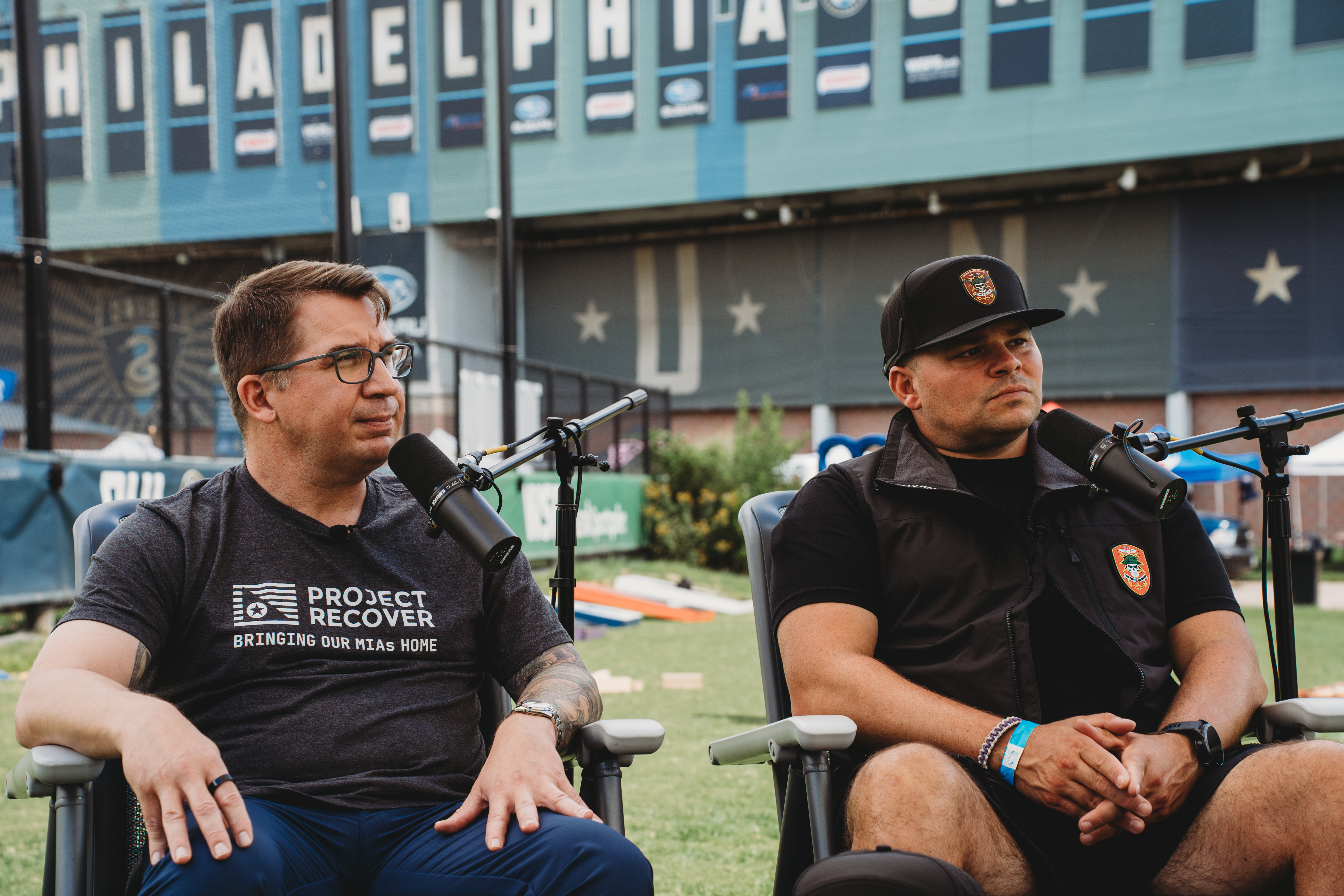
That promise exists that we’re going to come back and we’re going to bring you home. Just like that, a promise exists that we’re going to pursue our adversaries until we find them and eliminate them from the battlefield. Projects like this become critically important to me, our entire organization. We’re going to have a chance to sit down with two of our former MACV SOG operators, and we’re going to talk to them about this project and the importance of it, get their opinion, but I appreciate very much what you’re doing.
I look forward to the partnership with your team at Project Recover, and Charlie will lead us on the Green Beret Foundation side in bringing this to fruition. We’re going to be there from the Jedburgh Media Channel side and really looking forward to getting out there, and as Charlie said, “Regardless of what the outcome is, our goal is to bring somebody home and have that closure for their families and look forward to that.”
I’ll end with the fact that the vast majority of the American public has really no understanding that people are missing. In addition to that, the vast majority of the American public, and this is a failure of the municipalities, the local government, some of the state governments, schools, the only flag that’s allowed from a flag protocol perspective, to be flown directly underneath the United States of America flag, is the POW/MIA flag.
It’s why on our front lawn with our flag posts, there’s that flag. Not enough people realize that. As a kid, I immediately knew what that flag meant. We need to start to change that narrative. Kids need to understand that sacrifices have been made, let alone dying for your country and paying the ultimate sacrifice for people that you’ve never met.
Some paid that ultimate sacrifice. In addition to that, they paid another sacrifice, and they’re still there. I would challenge the American public, as they see this, to learn more about the Green Beret Foundation, learn more about the Project Recover, learn more about the partnership that we’re going to launch, and support it. It doesn’t happen without the support of the American people. Much like anything else that we do, it takes a team to accomplish the mission.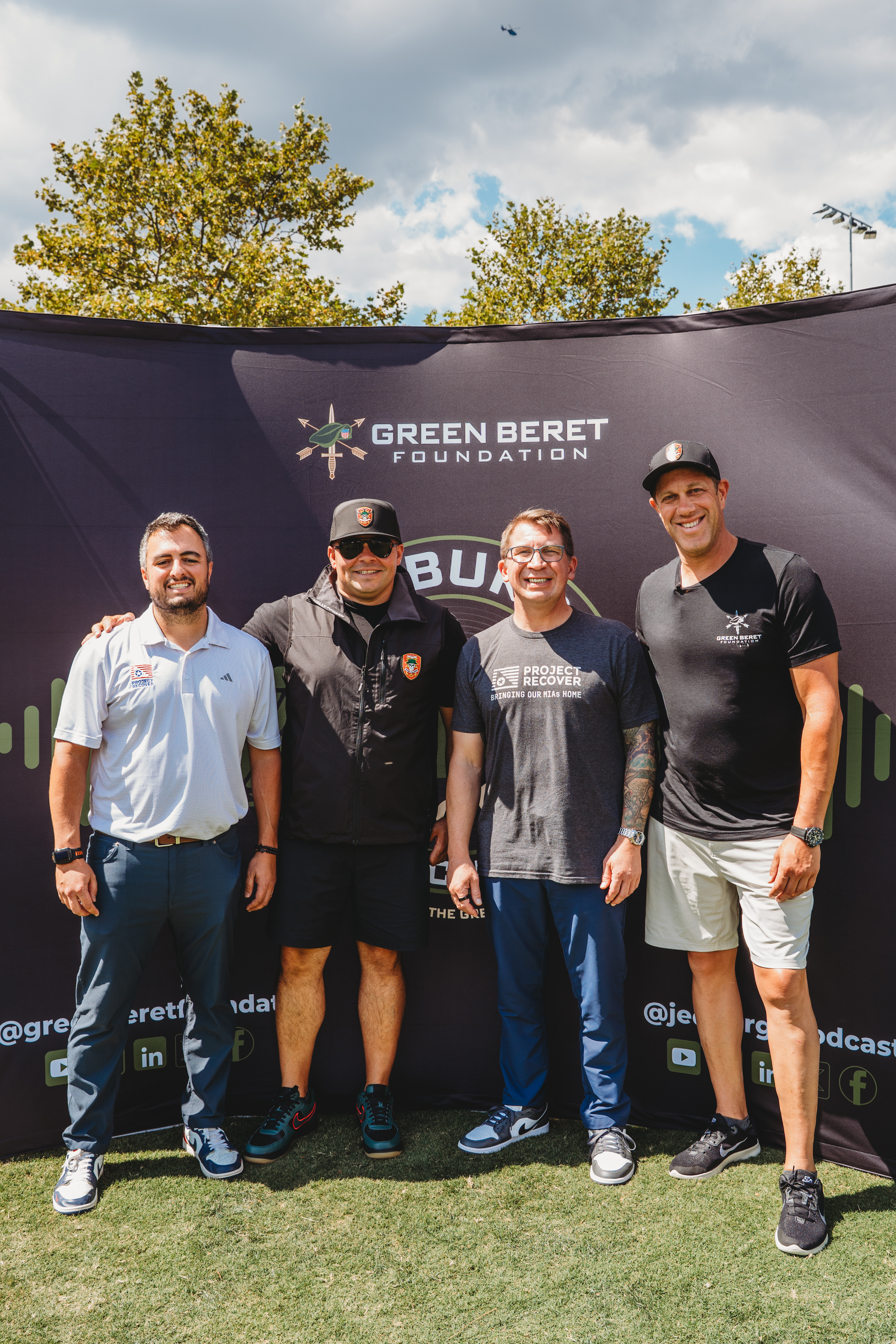
We want the American people to be behind this mission just as much as we want the Green Beret Foundation or Project Recover. We’re thrilled. I got a present for you, Derek, here. It’s a MACV SOG Stars and Stripes coin classic. Appreciate that. Keep that. As you head over to Vietnam, you can give that to one of the people, and you say that that’s the first exchange of commitment to it from our foundation to their people. I’m sure that they want to help us make this vision a reality.
A hundred percent. I’ll add about the excitement of working together. I was a Marine. We have a lot of ceremonies, Marine, and of course, always a POW/MIA table. When I was nineteen years old, we stood in that attention and went through that process, I would say a silent prayer to myself, but really never fathomed the impact that I could create on this community, and it was. Even coming into this work initially, it just seemed like a mountain to climb. It’s a significant mission, but we can accomplish it. It just takes perseverance. I have no doubt that we’re going to work extremely hard on this, and we’re going to have some positive results. I’m super excited to be working together and the impact that we’re going to create. Thank you for highlighting this.
You’ll appreciate this. When we agreed to come to Philadelphia, the PLL said, “Are there any requests?” I said, “The only way that we’ll go and play our game there is if they dedicate one chair to a POW/MIA.” There’s a chair that will be recognized ahead of the game and will continue to be recognized at this stadium. That’s a commitment that we’re going to have. We’re going to change the narrative. It takes one person at a time to make a difference. We wholeheartedly believe in that. The media channel is going to be a big part of this. Thank you, Fran, for having us on.
Awesome. Thank you.
Thank you.
